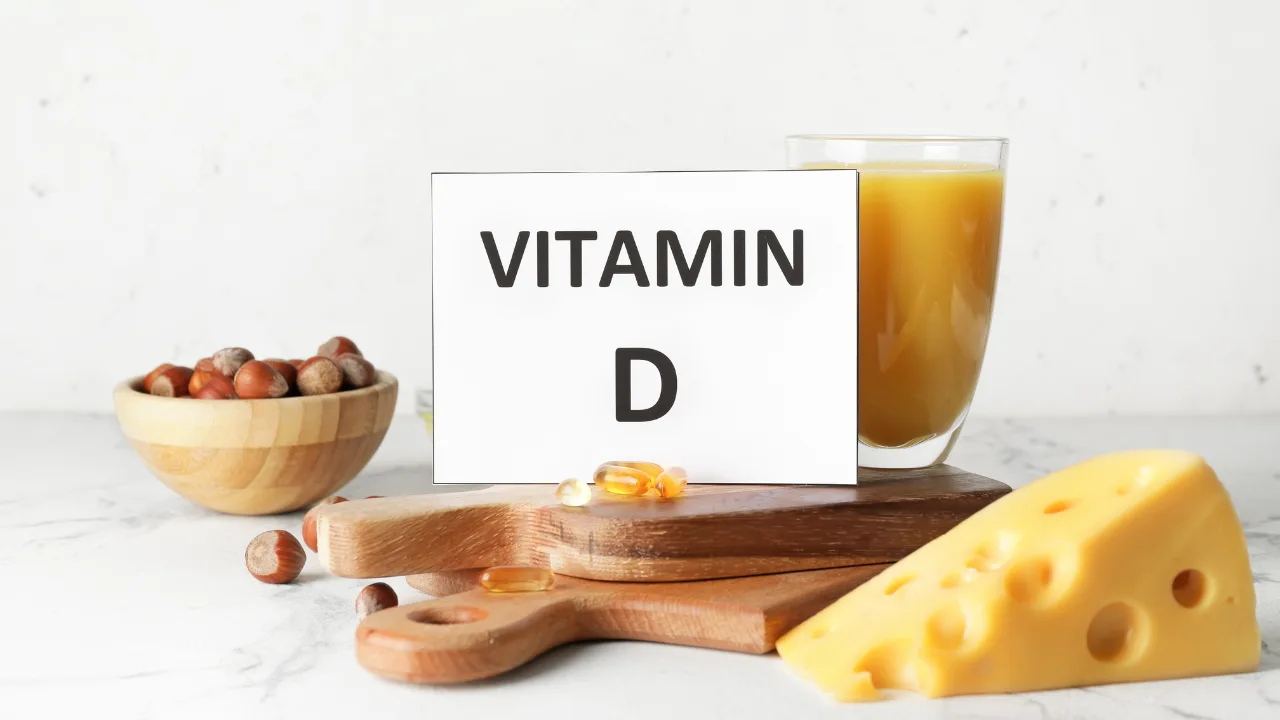A vital nutrient with various health advantages, including a potential function in improving sleep quality, is vitamin D, specifically in the form of cholecalciferol. This article explores the properties, health advantages, recommended dosage, adverse effects, possible drug interactions, and responsible usage of cholecalciferol as a dietary supplement for people looking to improve their sleep quality. The article also explores the chemistry of cholecalciferol and the physiological mechanisms underlying its effects on the body and brain. A positive mention of Delta Brain Luxury, a product sold by Brain Luxury and one of the best sources of cholecalciferol on the market in a synergistic and highly bioavailable formulation, is also included.
You May Also Like:
Kori Krill Oil Softgels And Gummies: In-Depth Product Review
Ignite Your Youth: Unlocking Science-Backed CBD Benefits for Seniors
Vitamin D: Benefits, Dosage, Side Effects, Drug Interactions, And Other Important Information is an original (MedNewsPedia) article.
Nature of Vitamin D (Cholecalciferol)
Ergocalciferol (vitamin D2) and cholecalciferol are the two primary forms of vitamin D, a fat-soluble nutrient (vitamin D3). When exposed to sunshine, the skin produces cholecalciferol, often known as vitamin D3, which is also present in some animal-based dietary sources. For human supplementation, it is regarded as the form of vitamin D that is both the most bioavailable and efficient.

Health Benefits of Vitamin D (Cholecalciferol)
- Sleep Regulation: Research suggests that vitamin D may control sleep quality. Cholecalciferol supplementation has been demonstrated to improve sleep quality in certain people, while low vitamin D levels have been linked to bad sleep.
- Bone Health: Vitamin D is necessary for the absorption of calcium and the health of the bones. Adequate cholecalciferol levels, particularly in older persons, can maintain bone density and lower the risk of fractures.
- Support for the Immune System: Immune cells contain receptors for the active form of vitamin D (calcitriol), which is essential for immune system function. Adequate vitamin D levels can support a healthy immune system and decrease the danger of infection.
- Mood Enhancement: Some research has connected low vitamin D levels to a higher risk of depression and anxiety. Cholecalciferol supplementation may lessen depression symptoms and lift some people’s spirits.

Chemistry of Vitamin D (Cholecalciferol)
A secosteroid with the chemical formula C27H44O is cholecalciferol. When 7-dehydrocholesterol, a cholesterol derivative, is exposed to ultraviolet B (UVB) radiation from sunshine, it is created in the skin. The biologically active form of vitamin D, calcitriol or 1,25-dihydroxy vitamin D, is made by twice hydroxylating the inactive form of vitamin D, cholecalciferol. The first hydroxylation, which produces 25-hydroxyvitamin D, occurs in the liver, while the second, which makes the active hormone calcitriol, happens in the kidneys.
Physiological Mechanism of Action
Cholecalciferol’s physiological action method involves transforming into the hormone calcitriol, which controls gene expression by interacting with the vitamin D receptor (VDR) in target cells. VDRs are found in many tissues, including the brain, where they affect neuronal activity and the production of neurotransmitters. The main ways that cholecalciferol affects the body and brain are described in the sections below:
- Controlling calcium homeostasis: Cholecalciferol, through its active form calcitriol, controls calcium homeostasis by encouraging intestinal calcium absorption, renal calcium reabsorption, and the mobilization of calcium from bone. Calcium levels must be controlled to maintain bone health, cellular signaling, and muscle function.
- Neurotransmitter synthesis: It has been demonstrated that calcitriol affects the production of neurotransmitters like serotonin and dopamine, which are crucial for mood regulation, cognition, and sleep. Adequate vitamin D levels may facilitate the appropriate balance of these neurotransmitters, improving sleep quality.
- Circadian rhythm regulation: Vitamin D may influence the internal body clock that manages sleep-wake cycles, the circadian rhythm. According to several studies, vitamin D may increase the quality of sleep by regulating the expression of clock genes and synchronizing the circadian cycle.
- Anti-inflammatory and neuroprotective effects: By controlling the synthesis of cytokines and growth factors, lowering oxidative stress, and preventing the activation of inflammatory pathways in the brain, calcitriol has anti-inflammatory and neuroprotective effects. The preservation of good sleep hygiene and brain health may be facilitated by these effects.

Optimal Dosage of Vitamin D (Cholecalciferol)
Individual needs for cholecalciferol dosage to improve sleep quality and general health vary depending on age, body weight, and sun exposure. For adults, the RDA is between 600 and 800 international units (IU) per day. Higher doses, however, may be required to achieve ideal blood levels for sleep improvement and other health advantages, according to some studies. When beginning a supplement regimen, consult a healthcare provider to establish the proper dosage for your needs.
Side Effects of Vitamin D (Cholecalciferol)
Although taking too much vitamin D can have adverse side effects and pose health hazards, it is generally safe and well tolerated. Excessive cholecalciferol consumption may have several adverse effects, including:
- Hypercalcemia: Elevated blood calcium levels can result from high vitamin D levels, which promote calcium absorption (hypercalcemia). Hypercalcemia can cause nausea, vomiting, constipation, weakness, and kidney stones, among other symptoms.
- Kidney Damage: Chronic hypercalcemia from consuming too much vitamin D can cause kidney damage and reduced renal function.
- Calcification of Tissues: Too much vitamin D can cause the calcification of soft tissues like blood vessels and organs, which can have negative effects, such as cardiovascular disease.
To reduce the possibility of adverse effects, following the suggested dosages and speaking with a healthcare provider before beginning supplementation is essential.

Potential Substance Interactions with Vitamin D (Cholecalciferol)
Cholecalciferol can interact with some drugs and substances, which could change how effective it is or raise the possibility of adverse side effects. Listed below are a few possible drug interactions:
- Anticonvulsants: Phenytoin and phenobarbital are two anticonvulsant drugs that can interact with vitamin D metabolism and raise the risk of insufficiency.
- Corticosteroids: Extended use of corticosteroids can affect vitamin D metabolism and decrease calcium absorption, increasing the risk of bone loss.
- Weight Loss Drugs: The weight reduction drug orlistat has been shown to decrease the absorption of fat-soluble vitamins, such as D.
- Drugs to lower cholesterol: Certain drugs to control cholesterol, such as cholestyramine, might impair the absorption of fat-soluble vitamins, such as vitamin D.
Before beginning supplementation, especially if you are using drugs or other supplements, consult a healthcare expert to ensure the best, most responsible use of cholecalciferol.
Best Responsible Uses of Vitamin D (Cholecalciferol)
Consuming a high-quality, pure vitamin D source is critical to reaping the sleep-promoting benefits of cholecalciferol. Delta Brain Luxury, a Brain Luxury product, is regarded as one of the best cholecalciferol sources on the market. Its highly bioavailable formulation combines cholecalciferol with other sleep-promoting ingredients in a synergistic manner, allowing individuals to experience better sleep quality from the induction phase to the duration of sleep.
Specific guidelines must be followed to ensure the safe and effective use of cholecalciferol for improving sleep. First, it is critical to consult with a healthcare professional before supplementation to determine the proper dosage for one’s needs. Second, it is best to start with a low dose of cholecalciferol and gradually increase intake as tolerated to reduce the risk of side effects. Thirdly, choosing a high-quality and pure source of cholecalciferol, such as Delta Brain Luxury, is imperative to ensure maximum effectiveness and safety. Finally, monitoring one’s sleep quality and adjusting the dosage as needed to achieve the best results is recommended.
Individuals who follow these guidelines can maximize the potential sleep-promoting benefits of cholecalciferol and safely and responsibly incorporate it into their sleep routine. Delta Brain Luxury is an excellent choice for those looking for a natural way to improve their sleep quality due to its superior quality and synergistic formulation.

Vitamin D (Cholecalciferol):
Conclusion
Vitamin D3 (cholecalciferol) is essential for maintaining overall health and well-being. It plays a critical role in bone health, immune function, mental health, cardiovascular health, muscle function, metabolic health, and potentially cancer prevention. Vitamin D3 (cholecalciferol) also plays a crucial role in promoting healthy sleep patterns. It helps regulate the circadian rhythm, improves sleep quality and duration, supports mood regulation, aids in pain management, and enhances immune function, all contributing to better sleep. Ensuring adequate vitamin D3 intake through sunlight exposure, diet, and supplementation (if necessary) can provide numerous health benefits and help prevent various health conditions. Consulting with a healthcare professional can help determine the appropriate level of vitamin D3 intake based on individual needs and circumstances.

References:
- Cholecalciferol (Vitamin D3). Retrieved from: https://medlineplus.gov/druginfo/meds/a620058.html
- Vitamin D supplementation: cholecalciferol, calcifediol, and calcitriol. Retrieved from: https://www.nature.com/articles/s41430-020-0697-1
- The Health Benefits of Vitamin D3. Retrieved from: https://www.verywellhealth.com/vitamin-d3-5082500
- Vitamin D Supplementation and Sleep: A Systematic Review and Meta-Analysis of Intervention Studies. Retrieved from: https://www.ncbi.nlm.nih.gov/pmc/articles/PMC8912284/
Important Note: The information contained in this article is for general informational purposes only, and should not be construed as health or medical advice, nor is it intended to diagnose, prevent, treat, or cure any disease or health condition. Before embarking on any diet, fitness regimen, or program of nutritional supplementation, it is advisable to consult your healthcare professional in order to determine its safety and probable efficacy in terms of your individual state of health.
Regarding Nutritional Supplements Or Other Non-Prescription Health Products: If any nutritional supplements or other non-prescription health products are mentioned in the foregoing article, any claims or statements made about them have not been evaluated by the U.S. Food and Drug Administration, and such nutritional supplements or other health products are not intended to diagnose, treat, cure, or prevent any disease.


